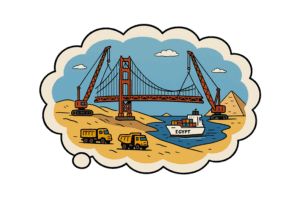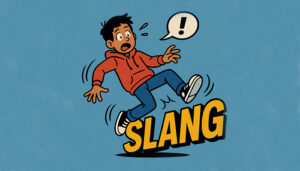The Best Human-Led Website Translation Service That Help You Truly Connect
We combine human insight with AI support to deliver website translations that sound natural, feel authentic, and resonate globally.
Expert Human Website Translation Services for Global Success
Translating a website into multiple languages is a simple, cost-efficient way to rapidly increase market size and sales. Every successful translation helps your brand and products connect with new customers in untapped markets worldwide.
At Brightlines, our human-led approach, supported by smart AI workflows, ensures your website content retains nuance, clarity, and tone. It’s not just about translation; it’s about connection. With people at the heart of the process, your message lands naturally, every time.
Why Website Translation Matters
Your website is your digital storefront. But if it’s only in English, you’re shutting out billions of potential customers.
- 72.4% of consumers say they prefer to buy from websites in their own language.
- 60% of global consumers rarely or never buy from English-only websites.
- Multilingual SEO can skyrocket your organic traffic and conversion rates.
A poor translation doesn’t just confuse visitors—it damages trust, dilutes your brand, and kills conversions. That’s why we don’t just translate words; we localise your entire website experience to drive engagement and sales in every market.
What We Offer
We don’t just translate—we localise, optimise, and convert. Our expert services ensure your website feels native in every language.
- Professional Human Website Translation – Native-speaking experts ensure accuracy and cultural fluency.
- Creative Marketing Translation – Your brand voice, perfectly adapted for local audiences.
- Multilingual SEO – Get found by global customers in their language.
- CMS Integration – Hassle-free implementation for WordPress, Shopify, HubSpot, Sitecore & more.
- E-commerce & UX Localisation – Convert international visitors into buyers with seamless user experiences.
- Human+AI Hybrid Translation – Efficiency meets quality: AI-powered drafts refined by human linguists.
- Expert Support & Rapid Turnaround – Get content live fast, with expert project management.
- Excellent Customer Service & Project Management – Dedicated support to help you navigate every step and get your website over the line.
How It Works – Simple, Fast, & Effective
- Request a Quote for our website translation services – Share your website details, and we’ll provide a tailored plan.
- Expert Localisation – Our specialists translate, optimise, and adapt for each market.
- Go Live & Grow – Seamlessly integrate translations and watch conversions soar.
Case Study
When Fisher Investments launched a Danish microsite, they needed content that felt like it was written in Denmark from the outset. Our website translation services played a crucial role by first crafting the English copy from scratch, ensuring it was primed for effective transcreation. This wasn’t just translation—it was a creative process that balanced marketing impact with cultural nuance. After meticulous client reviews, we reimagined the content in Danish—ensuring cultural authenticity and a natural flow. The Danish team’s feedback was fully integrated, refining the tone and accuracy of every detail.
Brightlines then back-translated the Danish text into English to ensure alignment across stakeholders, allowing UK and US decision-makers to review and approve the final version. This seamless process bridged global teams, ensuring every element of the microsite—from messaging to UX—resonated with Danish customers. The site is set to launch in March 2025, positioning Fisher Investments for success in the region. See the full case study here.
Ready to Go Global? Let’s Talk
Your competitors are already reaching global audiences. Don’t let language be a barrier—turn it into your advantage.
Translating a website can help with:
Expanding global reach
Make your website accessible to millions of new customers who prefer content in their native language.
Boost SEO & Visibility
Multilingual websites rank higher in local searches, increasing traffic and brand exposure.
Enhance User Experience
Customers engage more when they can navigate and understand a website effortlessly.
Increase Conversion Rates
People are more likely to purchase when they can read product details and offers in their own language.
Build Trust & Credibility
Speaking a customer’s language shows respect, professionalism, and commitment to their needs.
Stay Culturally Relevant
Culturally adapted content strengthens connections and avoids misunderstandings.
Elevate Your Brand
A multilingual website positions your business as global, inclusive, and customer-focused.
Gain a Competitive Edge
If your competitors don’t translate their websites, you’ll stand out and capture more market share.
Website Translation FAQs
What is a website translation service?
A website translation service helps businesses translate their website content into other languages, so it can be understood by people in different countries. This often includes localisation, adapting the text so it feels natural and culturally relevant to each audience.
Professional website translation ensures your content is accurate, on-brand, and easy to understand, no matter the language. It’s one of the most effective ways to reach international customers, build trust, and grow your presence in global markets.
Why use a website translation service?
While AI tools can help with basic translation, they often miss the tone, nuance, and cultural detail that make content truly connect. A professional website translation service ensures your message is clear, accurate, and locally relevant.
It’s also a highly cost-effective way to grow your business, by turning your website into a revenue-generating asset in multiple markets, without the overheads of physical expansion.
What is website localisation?
Website localisation means adapting your website so it feels natural to users in different countries, not just by translating the words, but by adjusting things like tone, images, layout, and even payment methods to suit local preferences.
It’s how you make your site feel “local” in every market, so visitors feel understood, not just translated. This creates a smoother user experience and builds trust, which leads to more engagement and higher sales.
How does website localisation differ from translation?
Localisation goes beyond translation by adapting a website's content, design, and functionality to a specific target audience's cultural preferences, customs, and market requirements.
Which CMS platforms are best suited for translation?
Some CMS platforms well-suited for translation include WordPress (with plugins like WPML or Polylang), Drupal, Joomla, and Sitecore. These platforms support multilingual content management and offer translation-friendly features.
How do right-to-left languages affect website translation?
Right-to-left (RTL) languages, such as Arabic and Hebrew, require website layout, design elements, and text alignment adjustments to ensure proper display and seamless user experience for RTL readers.
Why shouldn’t I translate my whole website with AI?
AI tools are fast, but they often miss tone, nuance, and cultural context. Worse, they can introduce subtle errors that go unnoticed—especially if you don’t speak the language. At Brightlines, we use AI to support our process, but every translation is reviewed by experts to ensure your message is clear, trustworthy, and human.
Why is it better to have a CMS that can export XLIFFS?
Utilizing a CMS that can export XLIFFs streamlines the translation process, making it more efficient and cost-effective. XLIFFs facilitate seamless content exchange between translators and the CMS, ensuring consistency and accuracy. They also simplify content updates, preserve formatting, and support translation memory, further enhancing the quality of the translation.
I’ve already translated my website with AI—can you check it?
Absolutely. AI often misses subtle errors and unnatural phrasing that only native speakers would spot. We offer expert review and refinement to ensure your translated website reads naturally, reflects your brand tone, and avoids costly missteps.
How do I translate an entire website?
You can use AI to translate your whole site, but be cautious. Machine translation may seem quick and low-cost, but it often introduces invisible errors, awkward phrasing, and cultural mismatches that can damage your brand.
We recommend combining AI efficiency with expert human review to ensure quality and clarity. Book a call or ask for a quote, we’ll walk you through the smartest way to translate your site, without compromising your message.
Case Studies
For world wide website and app translation
If there’s anything else you’d like to know about our website translation services, or any of the other translation services we offer, please get in touch today.








